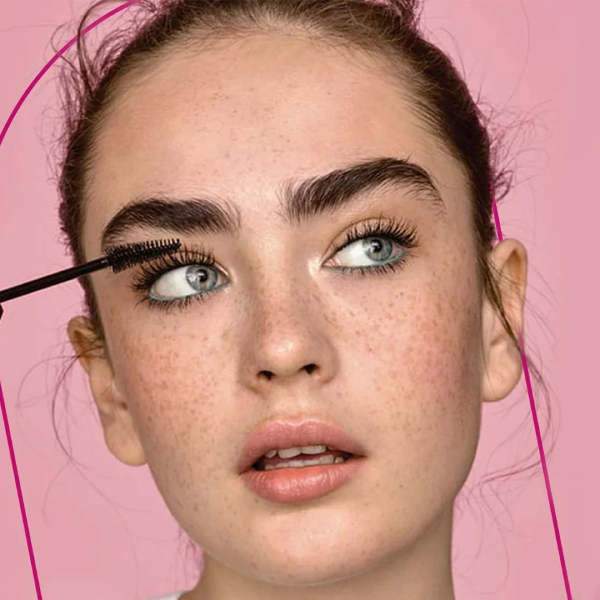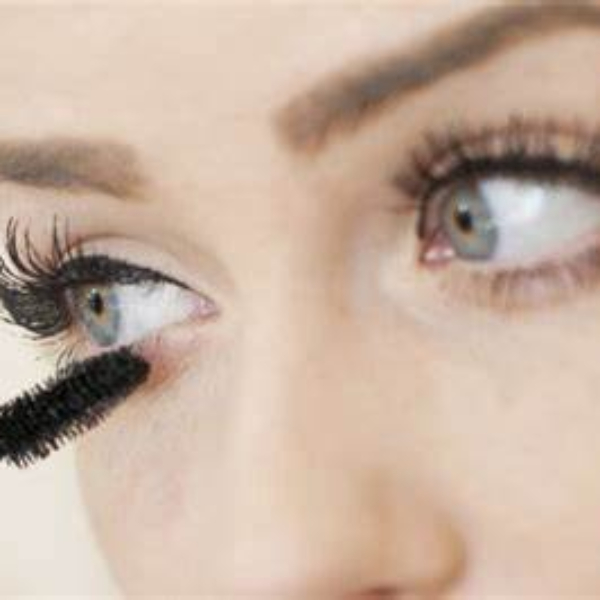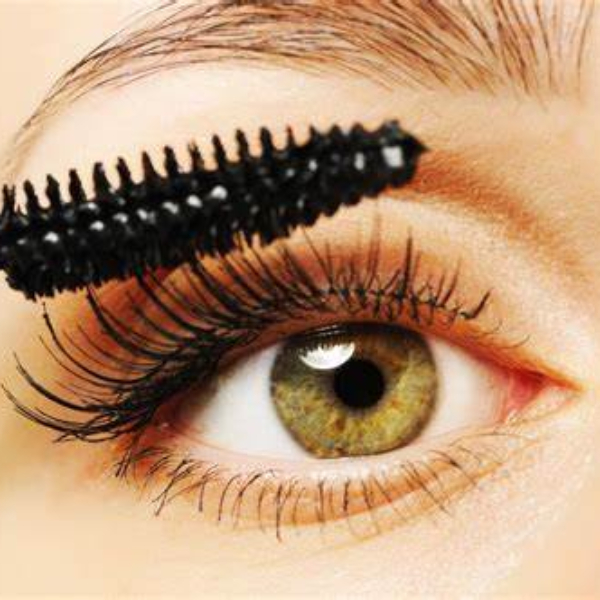Introduction to Mascara Formulations
When we explore mascara ingredients, we begin a journey into the heart of beauty science. Mascara formulations are precise blends of active substances that create the iconic look we all cherish. Understanding what is in mascara reveals the facts behind lash enhancement and the impact on our health.

A mascara’s purpose is to accentuate lashes, making them appear longer, thicker, and darker. Each formulation consists of key components serving different functions. Oils and waxes provide smooth application and structure. Pigments supply color, and preservatives maintain the mascara’s shelf life.
As consumers become more health-conscious, interest in mascara’s content grows. Legitimate concerns about safety have ignited discussions about non-toxic ingredients and ethical manufacturing practices. The information from both experts in the makeup industry and scientific data provides valuable insight into the formulation of mascaras.
Learning the composition of mascaras equips users with the knowledge to make informed decisions. It empowers consumers to choose products that not only beautify their appearance but also preserve their eye health and overall well-being. Through this article, we aim to guide readers through the complexities of mascara formulations, demystifying what is in mascara and outlining the ingredients that benefit or harm the delicate area surrounding the eyes. When you understand the ingredients in mascaras, you can make smarter choices and confidently decide to replace your mascara with options that enhance your beauty while protecting your eye health.
Key Ingredients in Mascara
Mascara works its magic on lashes largely due to a balance of oils, waxes, and pigments. Interestingly, the quality and safety of these ingredients can vary significantly, which directly impacts not only the effectiveness of the mascara but also the health of our eyes and skin.
The Role of Oils and Waxes
Oils in mascara help with smooth application, making the mascara glide over lashes easily. Common oils include mineral oil, lanolin, linseed oil, castor oil, oil of turpentine, and sesame oil. Natural waxes, such as beeswax or carnauba wax, provide the structure. They thicken the formulation, help it stick to your lashes, and resist smudging. The combination of oils and natural waxes in TSA mascara ensures a flawless application and long-lasting wear, allowing it to glide smoothly over your lashes while resisting smudging throughout the day.

It’s worth noting that some oils and waxes can cause irritation. Thus, it’s crucial to pick formulations with non-irritating and safe ingredients.
Pigments and Colors in Mascara
Pigments give mascara its color, so your lashes can stand out. The most used pigment is carbon black, which provides the deep black color common in many mascaras. Iron oxides are used for brown and other shades. However, be cautious, as some pigments can pose risks. For example, carbon black can sometimes be linked to coal tar, a potentially harmful substance. When selecting mascara tabs, it’s important to consider the pigments used, as they not only enhance color but can also pose potential risks; for instance, carbon black offers a rich shade but may be linked to harmful substances like coal tar.
It is essential to check mascara ingredient lists. Seek formulas with pigments that have a proven safety record. Natural and mineral-based pigments are often a safer bet for those seeking clean beauty options.
Beneficial Ingredients for Lash Health
Properly nourishing your lashes is as important as beautifying them with mascara. Choosing the right ingredients can promote lash health and strength.
Nourishing Oils and Vitamins
Certain oils and vitamins are key for healthy lashes. Look for mascaras with ingredients like argan oil, which is packed with antioxidants and vitamin E to nourish and strengthen lashes. Another great ingredient is jojoba oil, known for its conditioning properties. Biotin, also a popular ingredient in lash products, supports lash growth by promoting the synthesis of keratin, a protein vital to hair health.
Plant-Based and Natural Alternatives
Seeking natural alternatives for lash health is a growing trend. Plant-based waxes like carnauba wax provide structure to mascara without the potential irritation that synthetic waxes may cause. Natural preservatives such as rosemary extract can help extend the shelf life of mascara, offering a gentler alternative to synthetic preservatives. Using mascaras with these natural ingredients can help ensure that your beauty routine is both eye-friendly and environmentally conscious.
Harmful Ingredients to Avoid
When choosing a mascara, be vigilant about harmful ingredients. Some can be toxic or cause irritation.
Synthetic Preservatives and Parabens
Avoid mascaras with synthetic preservatives and parabens. They can disrupt hormones and cause health issues.
Coal Tar and Carbon Black
Steer clear of coal tar and carbon black. These substances can be linked to cancer and other health problems.
Allergens and Irritants
Allergens like beeswax and fragrances in mascara may cause redness and irritation. Choose hypoallergenic options instead.

The Importance of Mascara Safety
Ensuring the safety of mascara is essential. Products applied near the eyes require strict scrutiny due to potential harm.
Understanding FDA Regulations
The FDA regulates cosmetics, but it does not approve all ingredients. Ensure your mascara components have FDA recognition for safety.
Check for warning letters or recalls from the FDA on questionable mascara ingredients.
Choosing Clean and Non-Toxic Mascaras
Select mascaras free from known toxins and controversial chemicals. Look for products labeled ‘non-toxic’ or ‘clean’.
Aim to use mascaras with natural preservatives and beneficial oils. These are safer for your eyes.
Avoid formulas with synthetic dyes, parabens, and fragrances that can cause irritation.
Vegan and Cruelty-Free Mascara Options
Choosing mascara that reflects personal ethics is important for many. Vegan and cruelty-free options offer eye-enhancing beauty without using animal products or testing.
Identifying Animal-Derived Components
Many mascaras contain animal-derived ingredients. To avoid these, look for labels like ‘vegan’ or ‘contains no animal by-products’. Common non-vegan components include beeswax, lanolin, and guanine from fish scales.
Plant-Based Waxes and Conditioners
Plant-derived alternatives protect animals and often suit sensitive skin better. Carnauba and rice bran waxes are popular vegan choices. Plant oils like almond or sunflower oil can nourish lashes naturally. They provide moisture and support lash growth without harm to animals or your skin.
Concluding Tips for Health-Conscious Consumers
In conclusion, the quest for healthier lashes doesn’t end at choosing the right mascara. It extends to becoming an informed and cautious consumer.
Checking Labels and Ingredients Lists
Always read the labels and ingredient lists on mascara products. Seek out beneficial ingredients like biotin and argan oil. Avoid harmful ones like parabens and carbon black. Remember, what goes on your body is as crucial as what goes in it.
Favoring Trusted Brands with Transparent Practices
Choose mascaras from brands that value transparency and safety. Trust brands that openly share their ingredients and avoid testing on animals. Look for certifications like ‘cruelty-free’ or ‘vegan’ on packaging. A brand’s commitment to ethical practices often reflects in the quality of their products.